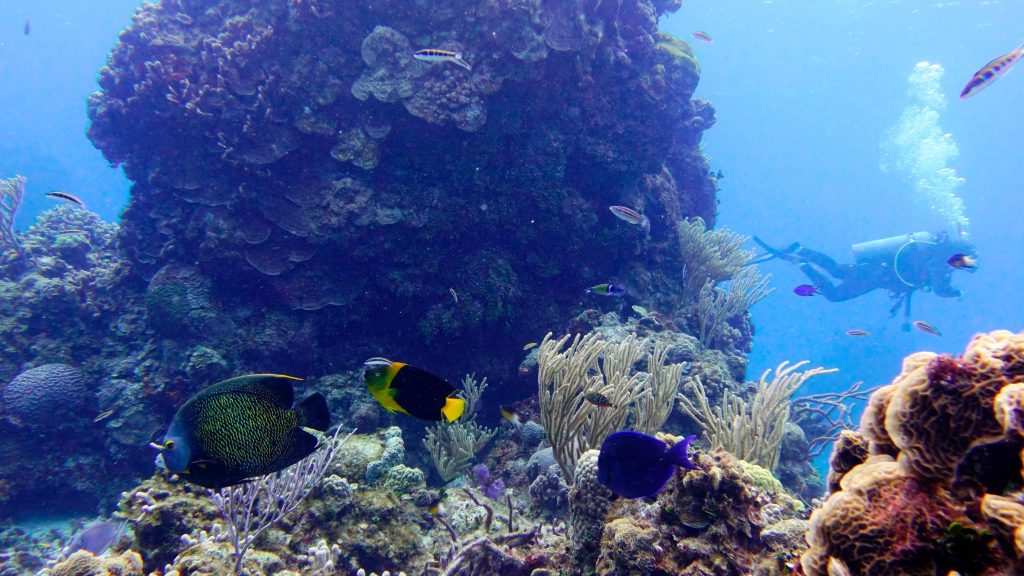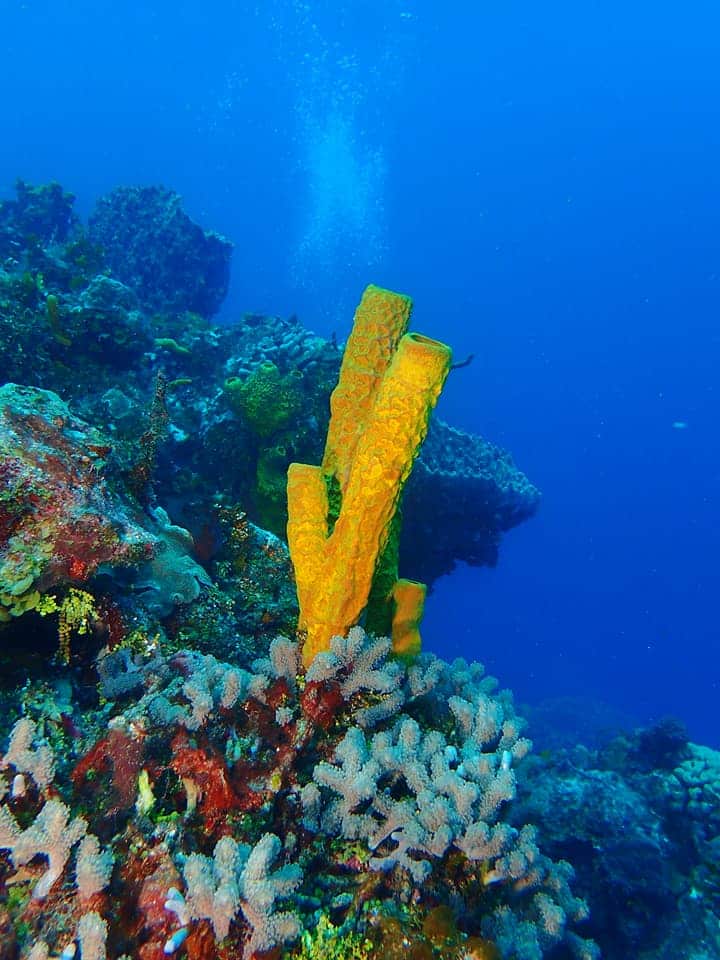
The UN Environment Program declared 2018 as the third International Year of the Reef (IYOR). After two editions of IYOR and faced with a climatic emergency that weighs on these ecosystems, this campaign again wants to raise awareness about the value and importance of coral reefs and the threats to their sustainability, and to motivate people to take action to protect them.
In Go Green, we are completely aligned with this initiative and we want to tell you something more about the coral reefs.
The coral reefs are severely threatened
Coral reefs are the ecosystems with the most biodiversity on the planet and host at least a quarter of all marine life. However, according numerous research results, coral reefs and associated ecosystems, such as mangroves and sea grasses around the world are been seriously threatened by a range of human activities. Many of the world’s reefs have already been destroyed or are severely damaged by water pollution, overfishing and diseases, but the most important of these problems is climate change.
A study published by ONU affirm that over half of the corals in the Caribbean have disappeared since the 1970s, and those that remain, a sixth part of the original coral reefs, can disappear in twenty years.
The importance of corals reefs.
Only in Mexico, the number of coral formations is made up of approximately 60 species, between 8 and 10% of all known coral species in the world. In fact, it is the area with the highest degree of coral richness in the Caribbean and the second in the world.
Coral reefs are places of great ecological importance, they are critical habitats due the many functions they have in the natural order.
They play a very important role in order to prevent erosion and the reduction of wave strength. In fact, the coral reefs are the most effective protection structure against the strong effects of tropical storms and hurricanes.
All these organisms have a great participation within the ecosystem. Some of them, like the primary ones, are the builders of the reef, but the filter feeders and the predators are extremely important too. The reefs are places for breeding, shelter, feeding and reproduction of many species of invertebrates and vertebrates, mainly of commercial species that feed a large part of the population. An estimated one billion people have some dependence on coral reefs for food and income from fishing.
We can also expect coral reef species to contribute to future medical advances. Already coral reef organisms are being used in treatments for diseases like cancer and HIV. We cannot forget tourism. We could not enjoy the marvelous Caribbean white sand beaches without coral reefs, neither enjoy our favorite sport, scuba diving.
Could 2018 be a reason for optimism?
For these reasons, 1997 was declared the first International Year of the Reef, eleven years later, it continues to be an urgent need to increase awareness and understanding about coral reefs. 2018 IYOR is an opportunity to go further in the conservation and management of these valuable ecosystems. This year, it is producing a great gathering among nations, organizations and individuals around the world to raise awareness and motivate people to take action. An impressive amount of educational material has been produced in several languages during the year, including posters, educational DVDs and children’s books. More than 630 events have been organized in more than 65 countries and territories around the world.
If all of these resources achieve the goal to generate urgent action to develop and implement effective management strategies for conservation and sustainable use of these ecosystems, definitely 2018 will mark a decisive turning point in the conservation of marine biodiversity.
